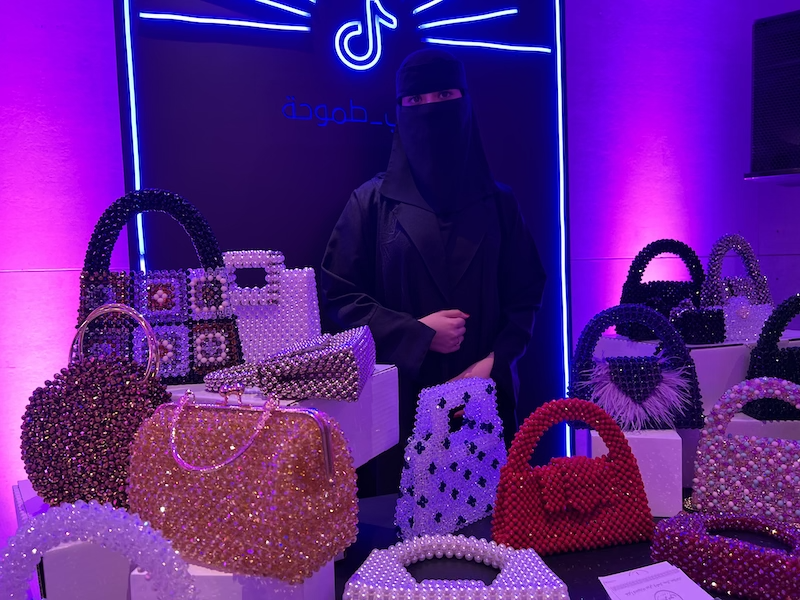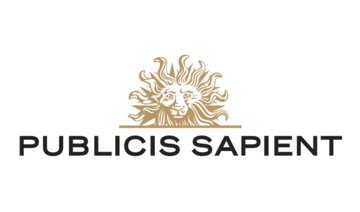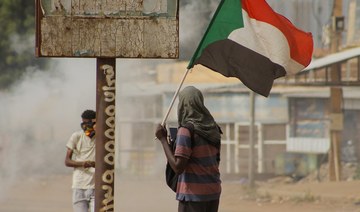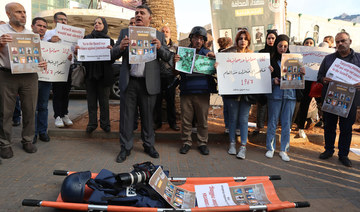RIYADH: TikTok MENA (Middle East and North Africa) hosted the second edition of the TikTok Creator Hub Awards ceremony in Riyadh on Wednesday to celebrate the growth of women-led businesses.
Taking place in Lakum Artspace, the event was attended by many aspiring businesswomen and influencers from the region.
Heba Qadeer, who won a second-place prize, told Arab News: “It’s incredible. I couldn’t believe it. When I found out that I (had) won, I was at work, and the first thing that I did was call my mom.”
Born and raised in Dubai, Qadeer is the founder and designer at Bharosa, a design line which celebrates Pakistani and Middle East culture.
She said: “I resonate with Middle Eastern culture so much, I am a hijabi myself and I absolutely love modest wear but at the same time I love my Pakistani colorful rich culture, so I wanted to mix that and create something that is unique.”
She explained that turning 30 was a milestone that motivated her to pursue her dream in business.
The top three at the event won cash prizes with Duaa Al-Bataiha, founder of Dina’s Dessert Hour, winning $10,000 for first place.
Those in second and third place, Qadeer and Lara Akl, owner of a balloon and decoration company, received $5,000 each.
Kinda Ibrahim, TikTok’s general manager of operations for the Middle East, Turkiye, Africa, Pakistan, and South Asia, expressed the platform’s support for women-led businesses.
Reem Akl, communications and advocacy analyst at the UN Women Regional Office for the Arab States; Chahrazad Al-Hajjar, founder of Chahrazad’s Cuisine The Bakery; and Doaa Gawish, CEO and founder of The Hair Addict, also attended the ceremony.
Jomana Al-Rashid, CEO of the Saudi Research and Media Group and chairwoman of the Red Sea Film Foundation, delivered a speech via video.
She said: “To all of the incredible women creators, entrepreneurs and innovators here, you are making a profound impact on the world of digital media.
“Your creativity and determination are shaping narratives and inspiring women worldwide.
“Clarity of vision, resilience in execution, and the preparedness to seize opportunities when they are presented are the only determinants of success.”
One of the participants at the creator hub was Atheer Fahad, a Saudi designer who created the handbag brand Pearly.

She said: “This is all handmade. I taught myself how to create these products on my own and I took part in the competition through TikTok Creator Hub to reach more people and share my story and product.”
Fahad said she was a “one-woman show,” designing, creating, and promoting her handbags in the region.
She told Arab News: “I create these products on my own — from making the handbags by hand to managing the company and promoting it on TikTok.”
The program has helped her reach more people than ever before while showcasing her product, she added.
The TikTok Creator Hub launched its Middle East edition in 2022. The program is set to continue annually with the next edition scheduled to take place in January 2025.




























